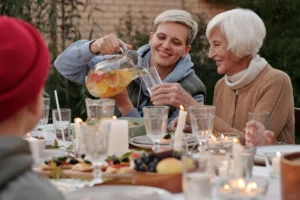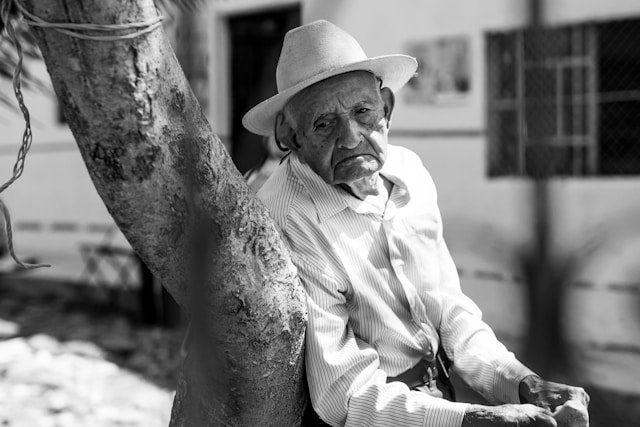How to Hydrate Dementia Patients Safely at Home
Staying hydrated is important for everyone. But it’s even more vital when it comes to people with dementia. A lack of fluids can quickly lead to confusion, falls, and infections. That’s why knowing how to hydrate dementia patients safely and quickly can make a big difference in daily care.
Why It’s Important to Hydrate Dementia Patients Every Day
People with dementia often forget to drink. They may not feel thirsty or know how to ask for water. As a result, they may suffer from dehydration. Dehydration can cause:
- Dry mouth
- Constipation
- Dizziness
- Confusion
- Urinary tract infections (UTI)
Because of these risks, carers must gently encourage fluids throughout the day. It doesn’t need to be complicated. With small changes and daily routines, you can help hydrate dementia patients safely.
Best Ways to Hydrate Dementia Patients Fast
Use Familiar Cups and Mugs
Familiar shapes and colours help remind the person to drink. Use a bright mug or a clear plastic glass. Add handles if the grip is weak. These small details can boost fluid intake.
Offer Sips Often, Not All at Once
Encourage a few sips every hour. Do not wait for them to ask. Keep drinks in easy reach, like by the bed or favourite chair.
Try High-Water Foods
Some people may refuse to drink but enjoy eating. In these cases, try:
- Jelly
- Ice lollies
- Soup
- Watermelon
- Yoghurt
These foods hydrate just as well as drinks.
What Is the Fastest Way to Hydrate a Dementia Patient?

The quickest way to hydrate dementia patients is to offer small sips of oral rehydration fluids. These contain salts and sugars that help the body absorb water faster. Use a straw or spoon if needed. Always check if the patient has trouble swallowing before offering liquids.
If oral fluids are not working or if the person is very dry, call a doctor. In some cases, hospital treatment may be needed. However, most mild dehydration can be managed at home with care and simple tools.
How Long Does It Take to Hydrate an Elderly Dementia Patient?
It depends on how dehydrated they are. Mild dehydration often improves within a few hours if the person drinks small amounts steadily. Make sure they:
- Sip slowly
- Eat soft, hydrating foods
- Rest during the day
More severe dehydration can take 24–48 hours to correct. If symptoms like sleepiness or dry lips persist, speak with a healthcare professional.
What Are the Best Fluids to Hydrate Dementia Patients Quickly?
Water is the best option. But other drinks also help. You can try:
- Diluted squash
- Herbal teas (not too hot)
- Milk
- Coconut water
- Oral rehydration drinks
Avoid caffeine and fizzy drinks if they cause trips to the toilet or restlessness. Always offer drinks at room temperature or slightly warm for comfort.
How Much Fluid Should a Dementia Patient Drink Each Day?

Most older adults should drink about 1.5 to 2 litres of fluids each day. That’s about 6 to 8 cups of water or other drinks. However, this amount can change based on several things:
- Body weight: Heavier people may need more fluids.
- Weather: Hot weather can make you sweat more and need extra drinks.
- Medicines: Some medications can cause dryness or increase fluid needs.
- Activity level: More active people usually need to drink more.
Instead of counting drinks, watch for signs that someone might not be getting enough fluids. These signs include:
- Dark urine: If the urine is a dark yellow, it can mean dehydration.
- Dry skin: Skin may feel dry and less elastic.
- Confusion: A lack of fluids can affect thinking and mood.
- Constipation: Not drinking enough can lead to difficulty in bowel movements.
If you see any of these signs, increase fluid intake slowly. It’s best to spread drinks throughout the day instead of having them all at once. Try to encourage patients to drink during meals and snacks to help keep them hydrated.
Can You Overhydrate a Dementia Patient?
Yes. Though rare, too much fluid can cause overhydration. This can lead to:
- Swelling
- Headaches
- Nausea
- Low sodium levels
It often happens when drinks are pushed too much or if kidney function is poor. Always check with a doctor if you are unsure. Stick to slow and steady hydration.
How to Prevent Overhydration in Dementia Patients
- Do not force large amounts of liquid at once
- Monitor fluid intake throughout the day
- Ask a doctor how much is safe
- Watch for swelling in the hands, legs, or face
- Use small glasses and offer breaks between sips
Common Signs That an Elderly Person Needs More Fluids

It’s important to watch for signs that an elderly person may not be drinking enough fluids. Here are some clear signs to look for:
- Dry Mouth or Cracked Lips: If their mouth feels dry or their lips look chapped, they may need more fluids.
- Dark Yellow Urine: Normally, urine should be light yellow. If it’s dark yellow, it’s a sign they might be dehydrated.
- Feeling Tired or Confused: If they seem unusually tired or confused, it could be a sign that they aren’t getting enough water.
- Dizziness or Unsteady Walking: If they feel dizzy or have trouble walking steadily, this can also indicate dehydration.
- Fewer Trips to the Toilet: If they aren’t going to the bathroom as often as usual, it might mean they’re not drinking enough.
If you notice any of these signs, it’s important to help hydrate elderly individuals, especially those with dementia, as soon as possible. Taking action early can help prevent more serious health problems.
Assistive Technology That Helps Hydrate Dementia Patients
New tools can help you track and manage hydration:
Smart Water Bottles
These remind the person to drink using lights or sounds. Some track how much they drink and send alerts to carers.
Talking Cups
Some cups speak reminders like, “It’s time to drink water.” They are useful for people with memory issues.
Hydration Apps for Carers
Apps can track drinks and send alerts. Some can even share updates with family members or care teams.
Using these tools helps carers manage care better and prevents dehydration without stress.
Real-Life Tips to Hydrate Dementia Patients Easily

Use a Routine
Add drinks to daily habits. For example:
- Tea after dressing
- A glass of water with each meal
- A warm drink before bed
Routines build comfort and trust.
Make Drinks Enjoyable
Use a favourite mug or flavoured water. Try lemon, cucumber, or mint for flavour without sugar.
Stay Calm and Positive
If they refuse, don’t argue. Wait and try again later. Offer choices like “juice or tea?” rather than asking “Do you want a drink?”
When to Call for Medical Help
Sometimes you need outside help. Call a doctor if:
- They stop drinking completely
- They become very sleepy or confused
- Their skin becomes dry and cold
- Their urine output drops sharply
Getting help early avoids serious issues. You know them best—trust your instincts.
Can Dehydration Worsen Dementia Symptoms?
Yes. Lack of fluids can lead to more confusion, aggression, or memory loss. Some people even show signs of delirium, which may look like a rapid decline.
Rehydration can sometimes improve alertness, mood, and focus. That’s why it’s vital to hydrate dementia patients each day, even when they don’t feel thirsty.
Simple Daily Hydration Plan for Dementia Patients
Time Fluid Suggestion
Morning Water or warm tea
Midday Juice or soup with lunch
Afternoon Flavoured water or milk
Evening Herbal tea or hot chocolate
This steady pattern gives enough fluid across the day without overloading.
Final Thoughts on How to Hydrate Dementia Patients
Hydration isn’t just about water. It’s about trust, routine, and being patient. Using simple drinks, assistive tools, and regular reminders can help. These steps reduce confusion, improve energy, and prevent illness.
With the right approach, you can safely hydrate dementia patients and support their well-being every day.
“Get trusted advice on dementia care at home and practical tips for looking after someone with dementia at home—all in one place.”

